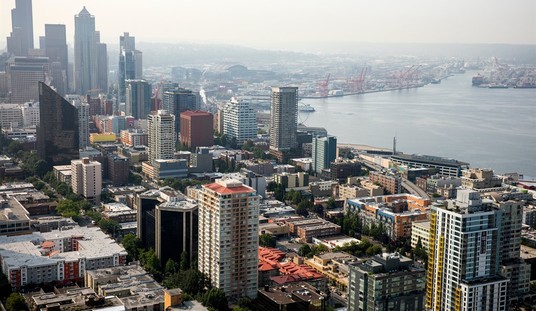The Iraqi presidential council reversed course today and approved a law considered crucial for reconciliation. The law approving provincial elections will allow for more local control over government services, which will give Sunnis much more of a stake in stability. It comes on the fifth anniversary of the invasion and gives a concrete example of political progress:
Iraq’s presidential council has withdrawn its objection to a provincial elections law. The announcement on the fifth anniversary of the war gives a major boost to U.S.-backed efforts to promote national reconciliation.
The move comes three weeks after the law was rejected because of concerns by Shiite Vice President Adel Abdul-Mahdi.
Wednesday’s statement says the council approved the bill after talks with legislators and political blocs. The decision paves the way for a national vote on Oct. 1 that the United States hopes will give the Sunnis more political power.
The approval comes days after visits by John McCain and Dick Cheney. Whether either of the men had any influence on the decision is not yet known, but the timing certainly implies that either or both put some pressure on the Iraqis to move. If so, McCain can claim an important foreign-policy victory even before he stands for election.
Congress will also have to take notice of the progress. This particular law meets one of their principal objections to the Maliki government. The passage shows that the political process has begun to work to produce policies that attempt to reconcile all of Iraq’s populations after five years of sectarian strife and four decades of oppression. The lack of such progress through 2007 led Congress to demand timetables for withdrawal; this will undermine those calls from the two Democratic presidential hopefuls.
The six months between now and the provincial elections will be critical to Iraq’s success as a sovereign nation. With the prospect of local control, the Sunnis will have more of a stake in the success of Iraq’s political system and at the same time, gives them an opportunity to buffer themselves from the Shi’ite majority in the National Assembly. It will produce regional leaders and eventually national leaders, all of whom will have a heavy investment in Iraqi nationalism. It could spell the end of the native insurgencies even after they finish off al-Qaeda, and perhaps their eventual absorption into provincial police departments and security organizations under control of the democratically-elected governments.
In the meantime, expect the terrorists to make every attempt to derail the elections. They do not have anywhere near the same level of leverage they had in 2005, when the last national elections were held, but they can still do damage. The US will need to remain engaged with Iraqi security services to thwart their last-gasp offensive.








Join the conversation as a VIP Member